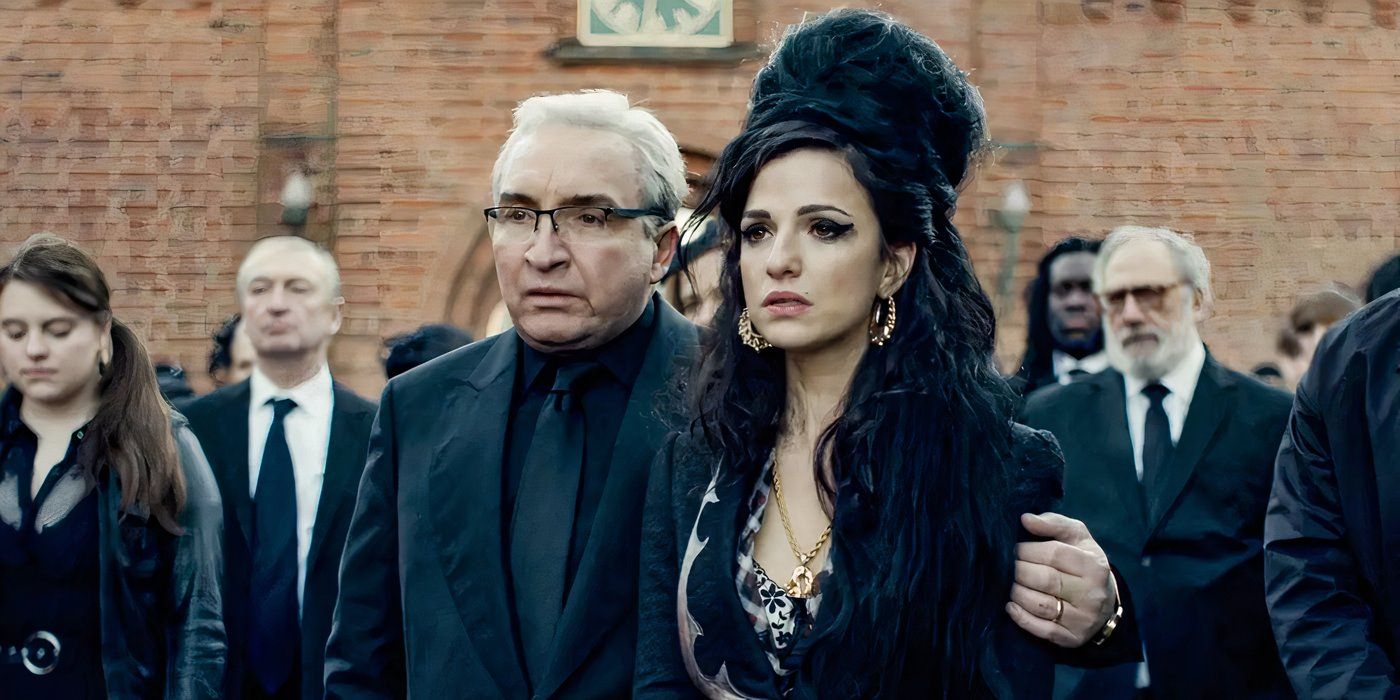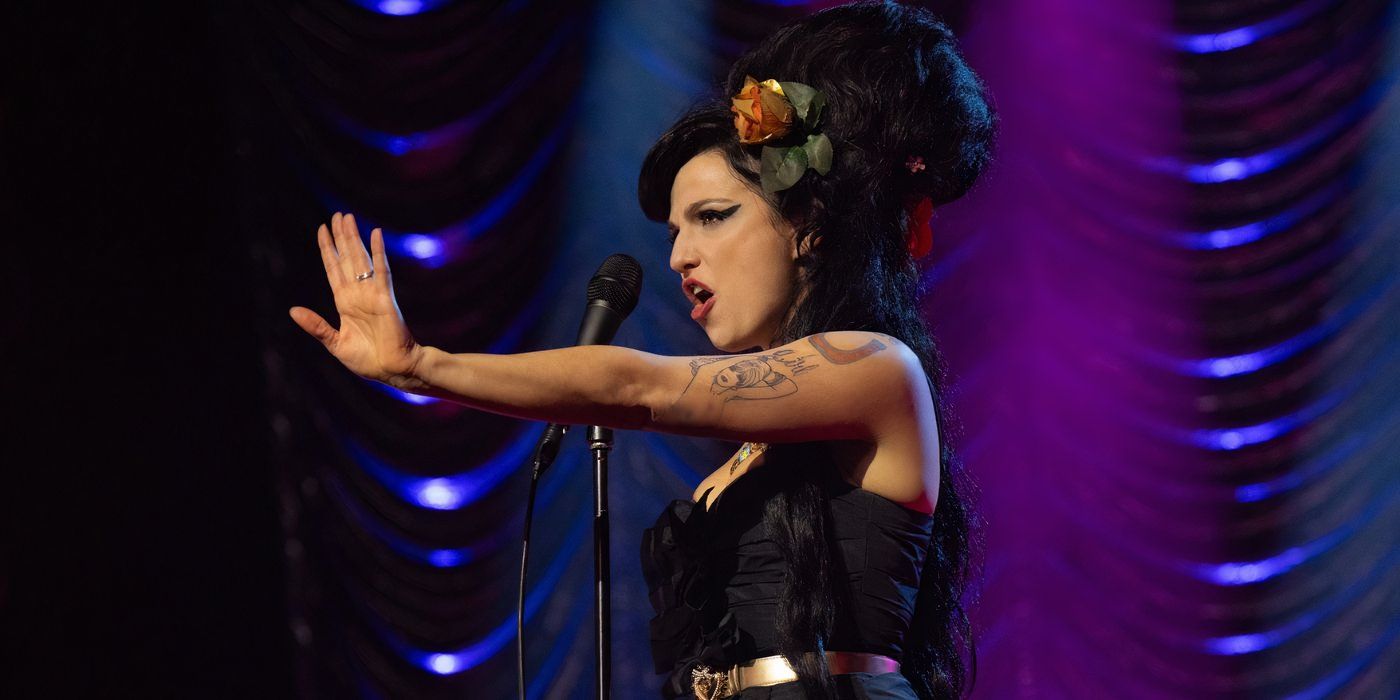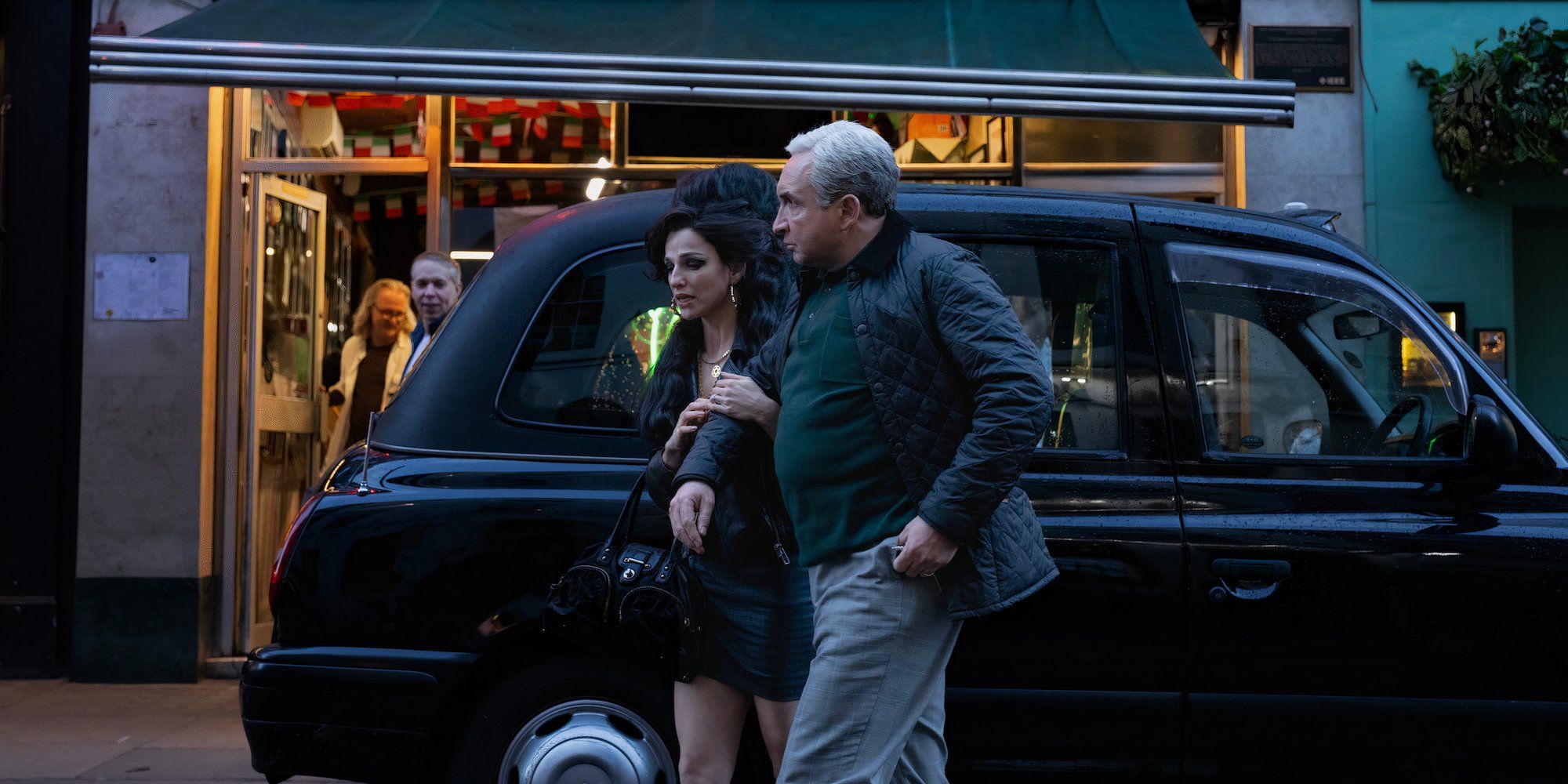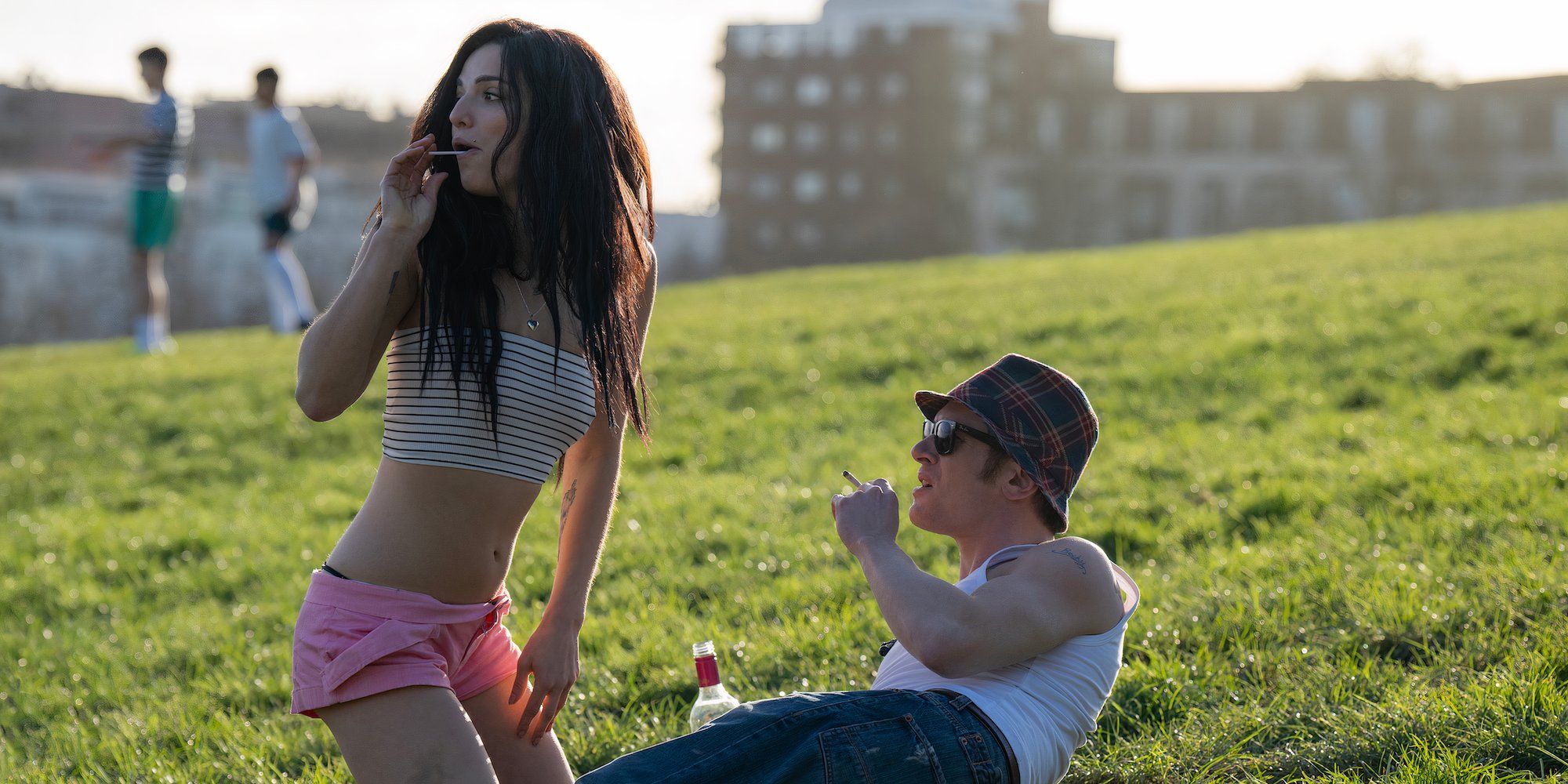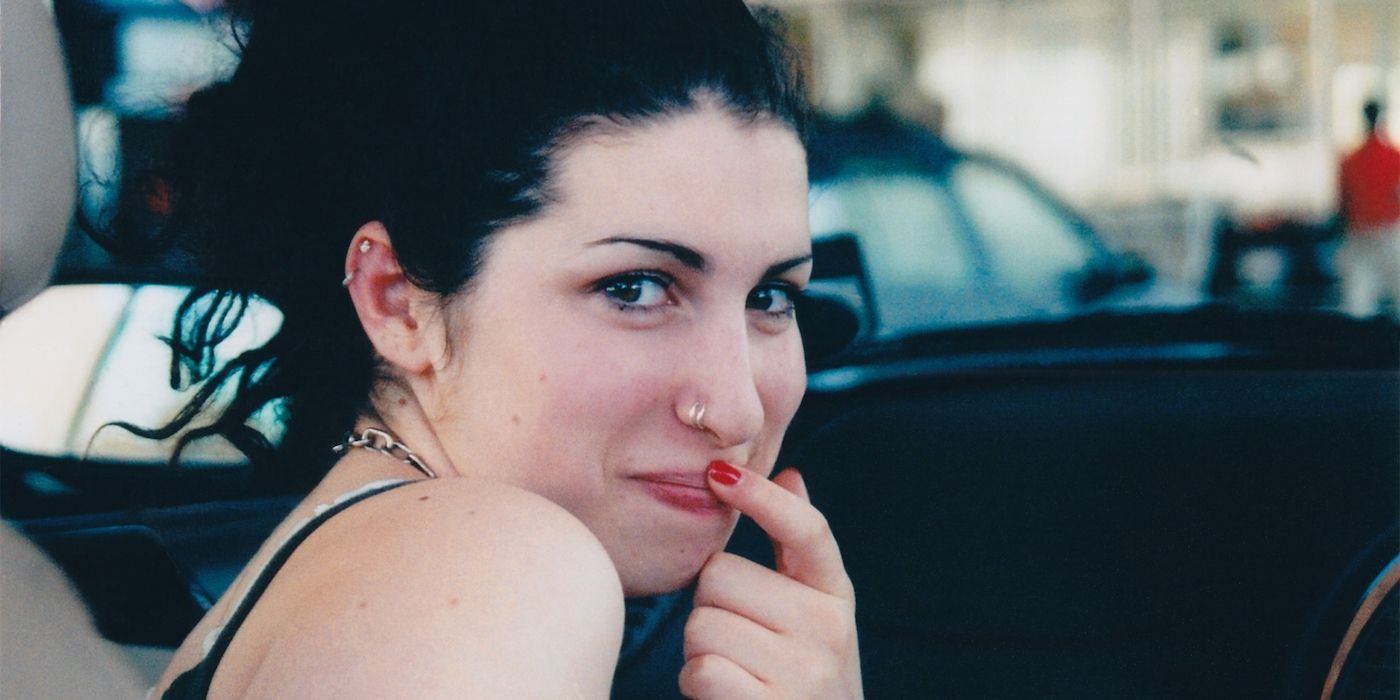The Big Picture
-
Back to Black
distorts the truth by favoring the men in Amy Winehouse’s life and absolving them of wrongdoing. - Marisa Abela gives a dedicated performance but the film reduces Winehouse to her male relationships.
-
Back to Black
is an inaccurate biopic that focuses on personal life over professional achievements, creating a dull and bleak experience.
Music biopics are Hollywood’s current pot of gold. With films like Bohemian Rhapsody and Elvis making absurd amounts of money and Oscars, movie producers are going to drink this well dry until it shrivels up and dies of dehydration. And Sam Taylor-Johnson’s Back to Black is the dry, shallow product of a subgenre that has lost its meaning. The creatively (and morally) bankrupt and downright offensive biopic glosses over Amy Winehouse’s complicated, and ultimately, tragic life to shine a more flattering light on her father and ex-husband, distorting the real-life events in her life to tell its own narrative.
Whether you’re interested in seeing this film or not, I implore you to watch Asif Kapadia’s 2015 Oscar-winning documentary, Amy, which is as stunning as it is devastating. Seeing Back to Black only increases your appreciation of the documentary and shows that there are filmmakers out there who give their subjects the empathy they deserve. It’s crucial when watching Back to Black to consider the fact that the Amy Winehouse estate co-produced the film. Unlike the documentary, the people involved in Back to Black are also the ones involved in the story being told, resulting in a movie that jumps over the nuances of Amy’s life to twist the truth to make those still alive look better. In short, Back to Black is a reminder of the dangers of dramatizing real-life events, of how the truth can get lost when people’s reputations are at stake and the person at the center of it all is no longer here to defend themselves.
Back to Black
- Release Date
- May 17, 2024
- Main Genre
- Biography
- Writers
- Matt Greenhalgh
What Is ‘Back to Black’ About?
In terms of narrative structure, Back to Black is about as basic as you can get. Matt Greenhalgh‘s contrived script begins with Amy as a bright-eyed London teenager who spends her days writing songs, getting tattoos with friends, and performing small gigs in the London suburb of Camden. She adores her paternal grandmother, Cynthia (Lesley Manville), and vies for more attention from her father, Mitch (Eddie Marsan), who no longer lives at home. When she’s approached by a management agency, she immediately rejects their offer because they also managed the Spice Girls, and as Amy tells them, “I ain’t no Spice Girl.” However, she is eventually swayed and signs on to record her debut album, Frank. It’s a success, but the record company doesn’t think it will do as well in America.
Amy sets out to have more life experiences to inspire her songwriting, and this is when we meet Blake Fielder-Civil (Jack O’Connell), a charming (at least in her eyes), outgoing capital-L Lad who loves the three Ps: pubs, pool, and pints. Amy, despite being beautiful, smart, and one of the most talented people on earth, is immediately attracted to the random man who won’t shut up about racehorses, and the two fall in love fast. From there, we get snippets of their destructive and toxic relationship which ends with him abruptly leaving her for his ex. When the film feels like it, it shows Amy, you know, writing her record-breaking sophomore album that is considered one of the greatest of all time and is the namesake of the film. Ultimately, the film is more interested in turning a drug-fueled, toxic relationship into a Notting Hill-like love story.
The Amy Winehouse Movie Was Doomed From the Start
Back to Black’s brazen disinterest in bringing any nuance to Amy Winehouse’s story is baffling. When the first images were released of Marisa Abela, Eddie Marsan, and Jack O’Connell filming the movie, it lit the internet alive with many fans begging for an answer to the same question “Who asked for this?” The answer is simple: no one except the people who stand to profit from it. The death of Amy Winehouse is still fresh in the public consciousness; of course, the singer shouldn’t be solely defined by her early death but she does represent the need for more empathy and understanding for women in the spotlight.
Again and again, in every decade, the press and public repeatedly tear down women who experience sudden success and who struggle with fame. Amy Winehouse was constantly ridiculed, having her talent dismissed because she was an addict. The film doesn’t show it, but when she was announced to have been nominated for a staggering six Grammys at just 24 years old, comedian George Lopez cracked a joke that someone should tell her when she wakes up at 6 pm and referred to her as “drunk ass.” Having her biggest career achievement ruined by public ridicule was just one of the countless times her talents were diluted by the public’s obsession with her personal life. The film barely touches on how exploited she was, it’s only interested in Amy’s destructive behavior. And yet, her eating disorder, addiction, and mental illness are trivialized to make way for a “love story.” The only thing that could’ve justified this movie being made is if it spoke to this appalling treatment of women in the spotlight, but Back to Black only seems to want to point the finger at Amy herself.
‘Back To Black’ Is Also Appalling to Look At
Taking a break from the ethics of it all, Back to Black is also an eyesore from start to end. It’s amazing how Sam Taylor-Johnson can take a fairly standard set — an apartment, the streets of London, a hotel bar — and make it look so digital and so fake that it feels like you’re watching The Sims: The Amy Winehouse Story: The Movie. Not many celebrities are as synonymous with a place as Amy Winehouse is with London. Iconic settings are seen throughout the film — Camden, Primrose Hill, Hampstead Heath — and none of it is captured with any sense of cinematic finesse. The streets look like the background of a 2000s video game, every scene more bleak and grey than the last. A specific scene when Abela’s Amy is being interviewed by Jonathan Ross is just laugh-out-laugh bad. It’s a stark reminder to the audience of the absolute pointlessness of watching something so ill-made when all it’s trying to do is lazily recreate something that didn’t happen all that long ago. These shoddy backdrops and grainy, grey sets further remove the audience from the story being told. While Bohemian Rhapsody has its many detractors, the effort put in to recreate Queen’s iconic Live Aid performance puts it miles ahead of Back of Black.
‘Back to Black’ Distorts the Truth
The film’s greatest sin (of which there are many) is that it completely absolves Mitch Winehouse and Blake Fielder-Civil of any wrongdoing in Amy’s life. Fielder-Civil has admitted to introducing the singer to hard drugs, including heroin, but the film shows her first taking them when they’re on a break from their relationship. Their marriage ends when Blake, sober and measured while in prison, politely and calmly tells her that they are in a toxic marriage and it’s best for both of them to end it. In real life, Fielder-Civil gave an interview for the TV show, Amy Winehouse: The Untold Story (of which footage is shown in Kapadia’s documentary), when he got out of prison, and Amy had been seen with another man. In the interview, he speaks about how handsome he is, his gym habits, and his good style “So what the fuck am I doing wasting my time with her,” all delivered with an innocent, content, almost proud smile.
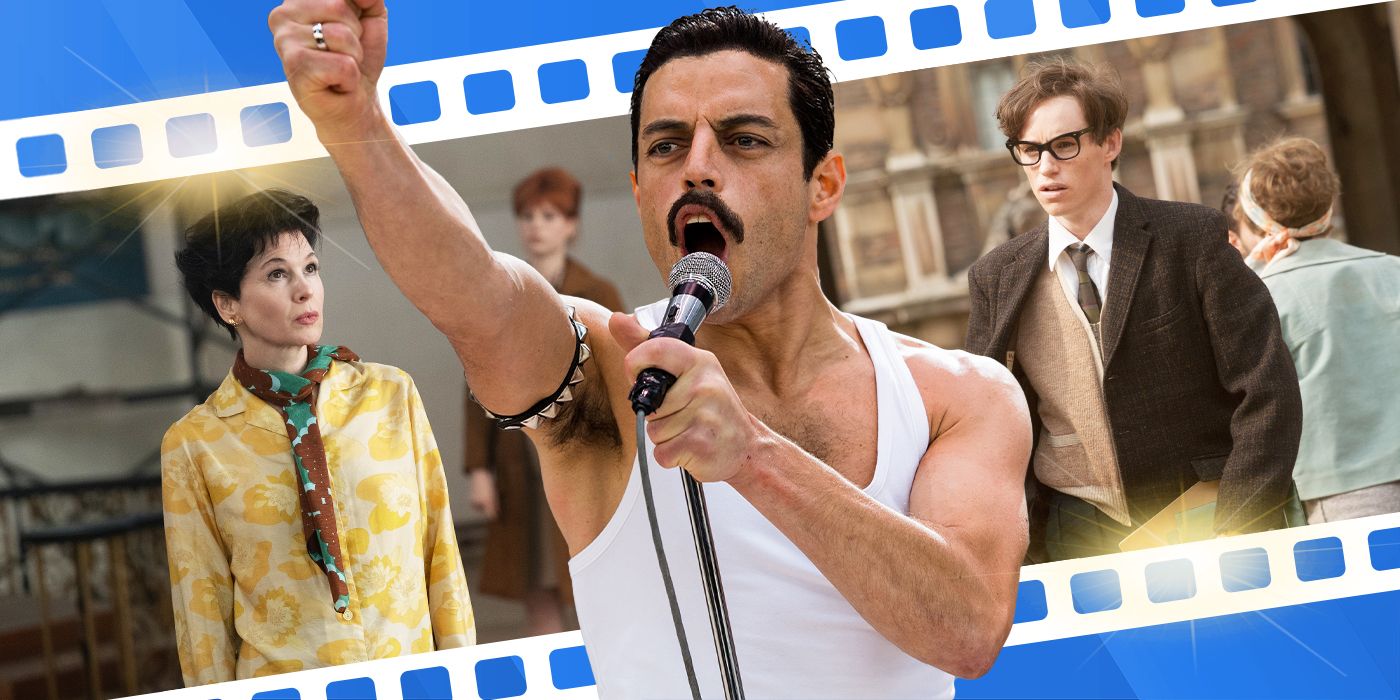
Related
The 10 Blandest Biopics, Ranked
Biopics that’ll have you wondering whether someone spiked your popcorn with NyQuil.
This isn’t to say that the film should’ve spent its entire runtime bashing these two men — well, her father at least. At the end of the day, a man lost a daughter he adored. Actor Eddie Marsan has repeatedly defended Mitch in interviews, saying that he would not have done the film if it had painted Mitch as a villain and that Mitch was a normal father who made mistakes. Exploring their complicated relationship, how Mitch mishandled the power he had over Amy, not sending her to rehab when she obviously needed help, would’ve given the film some substance. Mitch often just stands in the background, offering opinions no one asked for, and cradling Amy as if she simply has a stomach ache and not that her whole life is spinning out of control. The complexities of their relationship are barely touched upon, and Mitch is painted out to be a protective, doting father — nothing more. In real life, Mitch was known to be disapproving of Amy and Blake’s relationship, calling him “manipulative” and banning him from Amy’s funeral. In the film, that dynamic is squashed down to one moment that is almost played for laughs when Amy rings her father to tell her that she and Blake have eloped.
Again, he didn’t have to be an out-and-out villain, but his role in Amy’s life is played down to a conventionally inconsequential level. What the film doesn’t show but the documentary (which Mitch publicly denounced) does is Mitch following Amy, at one of the lowest points in her life, to St. Lucia as she tries to recover from her divorce and drug addiction. He brings along a camera crew to record a reality show, shoving more cameras in her face when she had traveled across the world to escape just that. I am in no position to point fingers, but between the documentary and the film, the nuances and inconvenient truths get lost to depict a more flawed Amy and a less flawed father and husband.
Marisa Abela Gives a Committed Performance as Amy Winehouse
There is one redeeming quality of the film: Abela is out there trying her best. It’s definitely a committed performance, but it’s one weighed down by everything around it not doing its job well. It doesn’t necessarily feel like an imitation and Abela captures Winehouse’s irreverent charm and charisma. The movie’s best scenes are undoubtedly the ones between her and Manville. Both of them melt in together to forge the only believable relationship in the film. Manville’s Cynthia is the calm respite for Amy, and the deep love they have for each other is the only source of emotional heft in the entire film. 10 seconds between them is worth more than entire scenes between Amy and Blake. However, perhaps the film’s biggest atrocity is having Abela sing herself. While she has a lovely voice, not using Amy’s shows a blatant lack of respect for her as an artist. Amy Winehouse became who she was because people hadn’t heard a voice like that in…ever… and no one has ever heard it since. To take away her most valued asset and put up Abela to try to recreate one of the greatest and most unique singing voices in the history of music is unfair to both Winehouse and Abela.
‘Back to Black’ Reduces Amy Winehouse to Her Male Relationships
A choice that best highlights how much the film dismisses the perspective of Amy in favor of focusing on the men surrounding her concerns Amy’s music icon: Tony Bennett. Even from just watching her face as she realizes he is one of the presenters announcing the winner of her category at the Grammys, you know that he is everything to her. In real life, a year before Amy passed away, she got to record a duet with Bennett, something the documentary shows lengthy footage of, as we see a skittish Amy stressed by the prospect of not succeeding in this dream moment. The movie does not show any of this, instead including a needless conversation between Amy and her Dad about them recording a duet cover of a Tony Bennett song on her next album — one that would never be made.
Back to Black should have showcased Amy’s achievements more, how talented she was, and how devoted she was to her music and more specifically, her genre. The film has an agenda, to lionize those closest to her while focusing on her failures but still not trying to understand her. Her drug use, bulimia, mental health struggles — none of it is given any nuance. Instead, they’re just train stations as the film quickly and impatiently runs through her life until it gives one of the most tone-deaf finales in recent cinema.
‘Back to Black’ Finishes With a Low Blow
Back to Black‘s ending could not have been more mishandled. While the one touch of classiness of the film comes in the fact that it does not show her dying, it almost tries to make it out that Winehouse’s story has a happy ending. After hearing about her ex-husband moving on and having a child with another woman, she sings “Tears Dry on Their Own” as she ascends the stairs in her new London mansion, up where white sheets hang in a metaphor for heaven as subtle as if God himself came down through the roof and snatched Amy up in his massive hand like that troll in Harry Potter. It’s the cinematic version of the “Girl Who Is Going to Be OK” meme.
But, she isn’t okay. As we all know, Amy succumbs to years of eating disorders, bad health, and drug addiction and dies at the age of 27. We’re only told this via pre-credits cards. We don’t see the aftermath, how this news shocked the world and devastated her fans (who the film completely ignores). Amy Winehouse’s death should enrage people — it was something that should have been avoided. Asif Kapadia summed up the singer in his brief Oscar acceptance speech better than the nearly two-hour film, saying that she was “someone special, someone who needed looking after.” Instead, she was continuously treated like a show pony, belittled and attacked by the press, treating as a joke instead of a young woman who was in desperate need of help before it was too late. The film acts like it is a peaceful, inevitable fate. It boils down the entire film to be about your ex moving on with another woman and reduces Amy herself down to her relationships with men. If you want to try to better understand one of the most talented musicians who ever lived, watching Back to Black would be as helpful as watching Cloudy With a Chance of Meatballs to study the effects of climate change.
Amy Winehouse Deserves Better Than This
As the credits rolled, my eyes were burning, and my mouth was still hanging open in disgusted bewilderment. I ran outside to re-enter the real world, to try make to sense of the fact that this film was made. When the nausea stopped, I put in my Airpods and turned on my personal favorite Winehouse song, “Tears Dry on Their Own,” and walked down the streets of London. I, like so many other fans, reach for this song when I require reassurance that I can handle the trials and tribulations of modern life. “He takes the day, but I’m grown“ has become something of a mantra to people when a Hinge date goes wrong, a job rejection email comes in, or a landlord ups the rent. It’s also a sweet reminder of a big reason music is so important in our lives — to make ourselves feel better. Amy Winehouse meant so much to so many people. Her death was such a tragedy that it deserves to be considered the same way Buddy Holly’s is — “The day the music died.” She will forever be remembered for being one of the greatest musicians of all time. But, sadly, Back to Black reiterates that she will always be one of the most grossly mistreated and misunderstood people in pop culture history — both in her life and death.
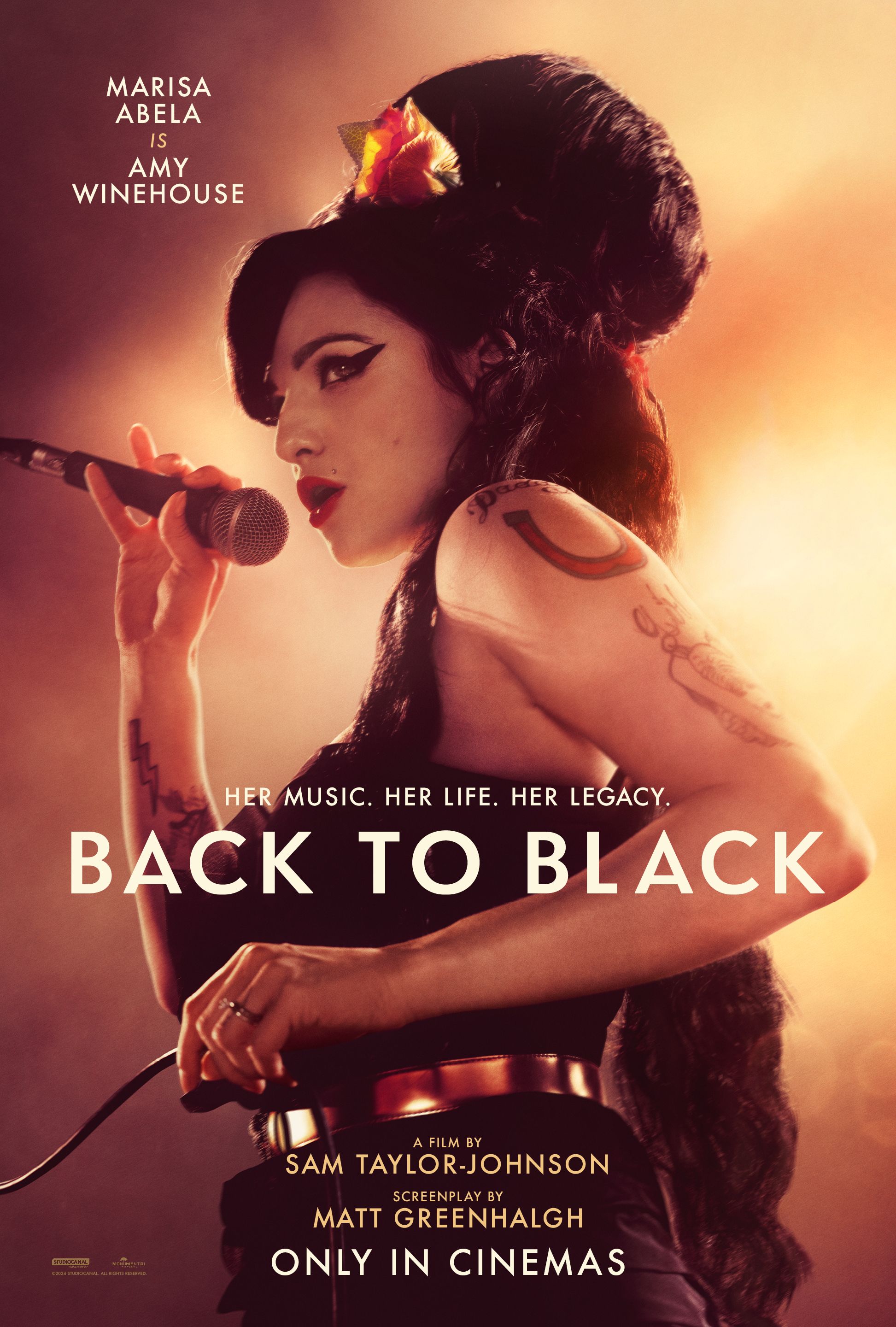
REVIEW
Back to Black
Back to Black is a hollow, ugly, and inaccurate biopic of Amy Winehouse that favors the perspective of the men in her life.
- Lead actress Marisa Abela gives a dedicated performance as Amy Winehouse, with a strong performance from Lesley Manville as well.
- Back to Black reduces Amy Winehouse to her relationships with her father and husband.
- The film undercuts Winehouse’s talents by not using her real singing voice and focusing on her personal life rather than her professional achievements.
- Sam Taylor-Johnson’s unimaginative direction makes Back to Black a dull, muted, and bleak film to watch.
Back to Black is now available to stream on VOD in the U.S.
WATCH ON VOD

